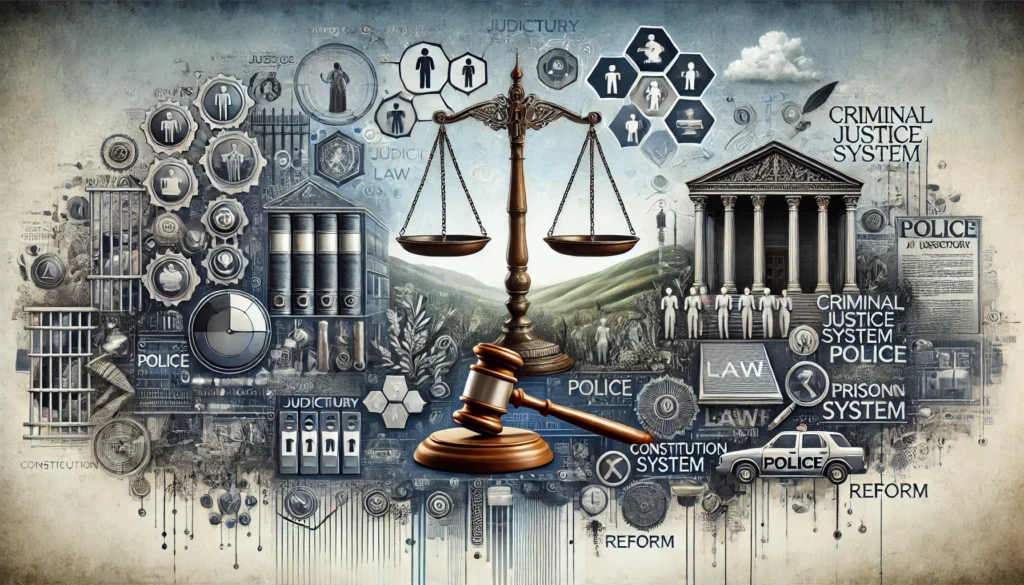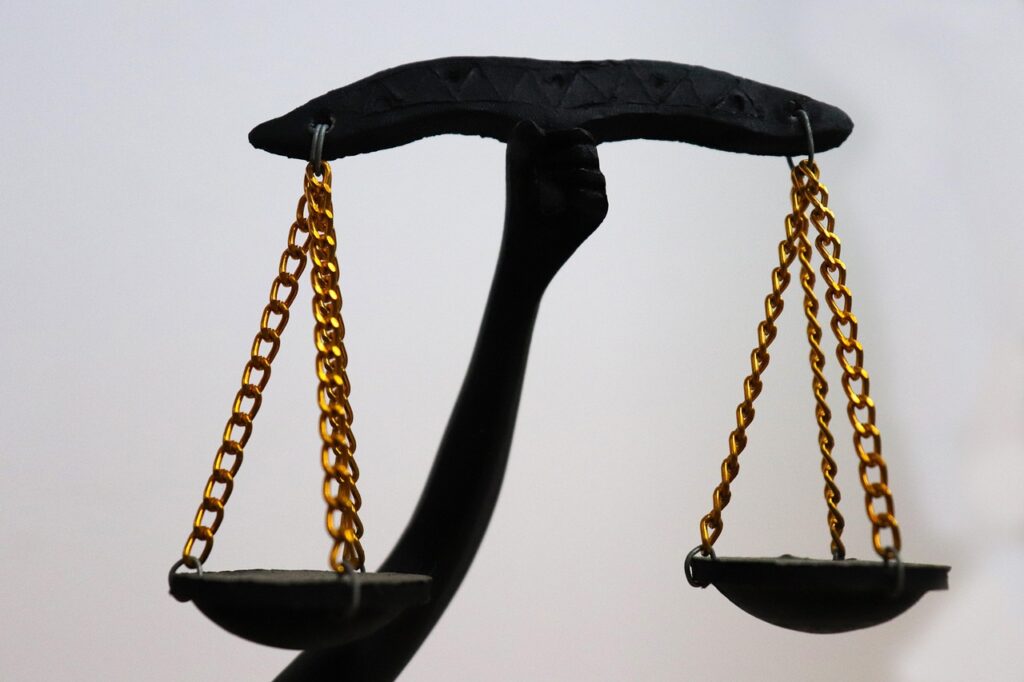Published On: 5th September, 2024
Introduction
In the case of Rajnesh v. Neha, on November 4, 2020, a division bench of the Supreme Court made up of Justices Indu Malhotra and Subhash Reddy established detailed rules governing maintenance payments in divorce situations. In the landmark case of, the Supreme Court of India addressed key issues related to spousal maintenance claims. The case clarified legal principles concerning overlapping jurisdiction, interim maintenance, factors affecting maintenance amounts, the starting date for awards, and enforcement mechanisms.In India, the law mandates financial support for dependents, including spouses, children, and parents. This support, known as maintenance, can be provided as a one-time lump sum payment or through regular monthly installments. Several legal provisions govern maintenance claims, including:
Section 125 of the Criminal Procedure Code, 1973: This section addresses maintenance obligations towards wives, children, and parents.
Sections 24 and 25 of the Hindu Marriage Act, 1955: These sections deal with “maintenance pendente lite” (temporary support during legal proceedings) and permanent maintenance after divorce.
Sections 18, 19, and 23 of the Hindu Adoption and Maintenance Act, 1956: These sections outline maintenance rights and responsibilities within Hindu adoptions.
Section 20 of the Protection of Women from Domestic Violence Act, 2005: This section grants maintenance rights to women who have suffered domestic violence.
Section 3 of the Muslim Women (Protection of Rights on Divorce) Act, 1986: This section protects Muslim women’s right to maintenance upon divorce.
Sections 36 and 37 of the Special Marriage Act, 1954: These sections address maintenance claims in marriages solemnized under the Special Marriage Act.
Facts
The Supreme Court upheld the previous rulings by the Family Court and the Bombay High Court.
The husband is directed to continue paying interim maintenance of Rs. 15,000 per month to the wife and Rs. 10,000 per month to the son during the ongoing proceedings under Section 125 of the CrPC before the Family Court.
The husband must pay all outstanding maintenance dues (arrears) at Rs. 15,000 per month within 12 weeks from the date of this judgment.
Failure to comply with these directions from the Supreme Court may allow the wife and son to enforce the order under Section 128 of the CrPC and pursue other legal remedies available to them.
Procedural History
The wife in this case left the marital home in January 2013, shortly after giving birth to a son. Approximately eight months later, she filed a petition under Section 125 of the Criminal Procedure Code (Cr.P.C.) seeking interim maintenance for herself and their minor child.
The family court granted the wife interim maintenance of Rs. 15,000 per month, retroactive to the date of her application. The son was awarded Rs. 5,000 per month, also retroactive to the application date. Additionally, the court ordered the husband to pay Rs. 10,000 per month starting from the date of the family court’s order until a final decision was reached in the main petition.
Dissatisfied with the family court’s ruling, the husband appealed to the Bombay High Court. However, the High Court dismissed his petition and upheld the family court’s judgment on August 14, 2018.
The husband then challenged these decisions by filing an appeal with the Supreme Court.
Key Legal Issues:
- Jurisdictional Overlap: Did the family court have the authority to hear the wife’s maintenance petition, considering other potential legal avenues?
- Interim Maintenance Validity: Was the award of interim maintenance by the family court justified and appropriate?
- Maintenance Amount Determination: What factors should be considered when determining the appropriate amount of maintenance to be awarded?
- Maintenance Start Date: From what date should the husband’s maintenance obligation begin?
- Enforcement Mechanisms: How can court orders regarding maintenance be effectively enforced?
Husband’s Arguments
The husband challenged the maintenance order, citing financial hardship. He claimed:
- Limited financial means: He argued an inability to fulfill the maintenance obligation due to a constrained financial situation.
- Loan reliance: He asserted dependence on loans from his father to manage his finances.
- Employment and asset status: He clarified his current employment status and lack of substantial assets, including real estate or numerous bank accounts.
- Outdated income records: He contested the family court’s use of his 2006 income tax returns for determining maintenance in 2013, implying a potential change in his financial circumstances.
Wife’s Arguments
The wife countered the husband’s claims and advocated for increased maintenance:
- Inadequate child support: She argued that the initial award of Rs. 10,000 per month for their son (awarded in 2015 when he was 2 ½ years old) was insufficient to meet the growing needs of a now 7 ½ year old attending school, especially considering unpaid school fees.
- Financial burden: She emphasized the increasing financial strain she faced without spousal support.
- Concealed assets: She accused the husband of hiding investments in real estate and other businesses from the court.
- Stree Dhan dispute: She alleged the husband’s illegal possession of her Stree Dhan and his continued non-compliance with court orders regarding its return, including those related to the Domestic Violence Act.
Rule
In claims for maintenance, a wife may seek relief under multiple statutes (personal laws like the Hindu Marriage Act or secular laws like CrPC Section 125). However, to prevent conflicting orders and ensure fairness, courts consider previous maintenance awards when determining the appropriate amount in subsequent proceedings. This avoids subjecting husbands to the burden of complying with multiple, potentially excessive, maintenance orders.
Analysis
Issue of overlapping jurisdiction
Indian law offers multiple avenues for wives and children to seek financial support through maintenance claims. These avenues include personal laws (like the Hindu Marriage Act and Hindu Adoption and Maintenance Act) applicable based on religion, and secular laws like CrPC Section 125, the Special Marriage Act, and the Domestic Violence Act.
The court acknowledged that a wife can pursue maintenance under any or all of these provisions, as each offers a distinct remedy with a specific purpose. However, the court also recognized the potential for conflicting orders and the burden placed upon husbands facing multiple proceedings.
To address this concern, the court emphasized the need to streamline the process and prevent overlapping jurisdiction. The court ruled that previous maintenance awards must be considered when determining the appropriate amount in subsequent proceedings. This ensures fairness and avoids subjecting husbands to potentially excessive maintenance obligations.
Payment of Interim Maintenance:
The parties must complete affidavit forms that the court has created in order to disclose their financial situation. Further deadlines were established to prevent delays: the respondent had four weeks to provide their disclosure, and the court in question had to adjudicate on the subject of interim maintenance within four to six months.
Criteria for Determining Maintenance Amount:
- The court recognized the absence of a rigid formula for maintenance awards. Several factors are weighed, including:
-
- The social and financial status of both parties.
- The reasonable needs of the wife and any dependent children.
- The wife’s education, professional qualifications, and independent income (if any).
- Whether the wife’s income allows her to maintain the same standard of living she enjoyed in the marital home.
- The wife’s employment status before and during the marriage, particularly if she sacrificed career opportunities for family responsibilities.
- Reasonable litigation costs for a non-working wife.
- The financial situation of the wife’s parents is generally not considered.
Date from Which Maintenance is Awarded:
The court highlighted the lack of a uniform rule across various laws regarding the starting date for maintenance. CrPC Section 125(2) offers some guidance, allowing magistrates to award maintenance from the date of the application or the order.
The court acknowledged the inconsistent practices among family courts concerning the starting date.
The case reiterated the view that dependents should receive maintenance from the date of application, citing the rationale behind maintenance legislation – to support spouses facing financial hardship after separation.
Financial constraints can hinder a dependent’s ability to secure legal representation. Awarding maintenance from the application date helps prevent destitution.
The court’s decision aimed to bring uniformity to family court practices regarding the starting date for maintenance awards.
Enforcement of Maintenance Orders:
- The court emphasized the importance of timely maintenance payments to fulfill the objectives of social welfare legislation.
- When maintenance is not paid, options for enforcement include provisions under the Hindu Marriage Act (Section 28A), the Domestic Violence Act (Section 20(6)), and CrPC (Section 128), depending on the applicable law.
- Maintenance orders can be enforced as money decrees under the Civil Procedure Code (CPC), using specific sections like 51, 55, 58, 60, and Order XXI.
New Procedures for Affidavit Disclosure in Maintenance Cases
Following a recent Supreme Court judgment (Rajesh vs Neha), new procedures are now in place for filing affidavits of disclosure of assets and liabilities in maintenance cases handled by Family Courts. These procedures apply to both new and pending cases.
- Affidavit Requirement: Both parties (applicant and respondent) must file these affidavits in the prescribed format (which may be adjusted by the court depending on the case).
- Applicant’s Responsibility: The applicant seeking maintenance initiates the process by filing a concise application along with their affidavit.
- Respondent’s Response: The respondent has a maximum of four weeks to submit a reply and their own affidavit. The court may limit opportunities to two if there’s a delay.
- Consequences of Non-Compliance: Failure to file the affidavit within the timeframe may result in the court deciding the maintenance application based on the available evidence.
- Dispute Resolution: If there’s disagreement about the information provided in the affidavits, either party can request court permission to use legal tools like interrogatories and document production to gather further information.
- Changes in Circumstances: If either party’s financial situation or relevant circumstances change during the proceedings, they can submit an updated affidavit.
- Economic Hardship Exemption: The affidavit requirement may be waived for parties belonging to the economically weaker section, living below the poverty line, or working as casual laborers.
Present Status of the Judgment
This is a recent Supreme Court judgment and remains applicable unless overruled by a subsequent ruling.
CONCLUSION
The Rajesh vs Neha case highlights the ongoing efforts in India to ensure fair and effective spousal maintenance. By addressing issues like overlapping jurisdiction, the court promotes clarity and prevents potential burdens on husbands facing multiple claims. Additionally, the standardized procedures for affidavit disclosure enhance transparency and streamline the process. This judgment contributes to a legal framework that better protects the financial needs of dependent spouses while ensuring fairness for all parties.
REFRENCSE(S):
- Sebastian, S., & Law, L. (2023b, November 7). Live law. Live Law. https://www.livelaw.in/top-stories/judges-not-following-guidelines-on-maintenance-supreme-court-directs-to-circulate-rajnesh-v-neha-judgment-to-all-judicial-officers-241851
- Supreme Court Observer. (2023, October 9). Court frames comprehensive guidelines on maintenance – Supreme Court observer. https://www.scobserver.in/journal/court-frames-comprehensive-guidelines-on-maintenance/
- Supreme Court of India- Judgement – Rajnesh vs. Neha and Anr. | District & Sessions Court, Bundi | India. (n.d.). https://bundi.dcourts.gov.in/document/supreme-court-of-india-judgement-rajnesh-vs-neha-and-anr/
- MALHOTRA, I. (n.d.). INDU MALHOTRA, J.https://cdnbbsr.s3waas.gov.in/s3ec020d352b4d3a317e3eae221199fdb4/uploads/2023/07/2023072748-1.pdf (https://lawbhoomi.com/rajnesh-v-neha/)
- MALHOTRA, I. (2020). Order passed in Criminal Appeal No.730 of 2020. In IN THE SUPREME COURT OF INDIA. https://main.sci.gov.in/supremecourt/2018/37875/37875_2018_39_1501_24602_Judgement_04-Nov-2020.pdf
- Family Court, Mumbai. (2022). Circular issued by Family Court, Mumbai. In Circular. https://districts.ecourts.gov.in/sites/default/files/RAJNESH%20Vs%20Neha%20affidavit_web_0.pdf
- Comment on Rajnesh Vs Neha – Guidelines for Maintenance in Matrimonial matters, B. SoundharyaSPECIAL ARTICLES (Title, Reporter Name) https://www.lawcentrum.com/specialarticles/comment-on-rajnesh-vs-neha-%E2%80%93-guidelines-for-maintenance-in-matrimonial-matters/b.-soundharya Comment on Rajnesh Vs Neha – Guidelines for Maintenance in Matrimonial matters, B. Soundharya Rajnesh Vs Neha ((2021) 2 SCC 324)B. SoundharyaRajnesh Vs Neha ((2021) 2 SCC 324) Rajnesh Vs Neha ((2021) 2 SCC 324)B. SoundharyaRajnesh Vs Neha ((2021) 2 SCC 324) LAW CENTRUM LAW CENTRUM. (n.d.). LAW CENTRUM https://static.wixstatic.com/media/7e1053_8b924c4c5c5e423693e0a3f23c57f841~mv2.jpg LAW CENTRUM https://www.lawcentrum.com/specialarticles/comment-on-rajnesh-vs-neha-%E2%80%93-guidelines-for-maintenance-in-matrimonial-matters/b.-soundharya SPECIAL ARTICLES (Title, Reporter Name) Comment on Rajnesh Vs Neha – Guidelines for Maintenance in Matrimonial Matters, B. Soundharya. https://www.lawcentrum.com/specialarticles/comment-on-rajnesh-vs-neha-%E2%80%93-guidelines-for-maintenance-in-matrimonial-matters/b.-soundharya
- Delhi Divorce Lawyers. (2023, November 2). CASE STUDY: RAJNESH vs NEHA – Delhi Divorce Lawyers. https://delhidivorcelawyers.com/case-study-rajnesh-vs-neha/#:~:text=The%20Supreme%20Court%20further%20directed,is%20educated%20and%20professionally%20qualified




